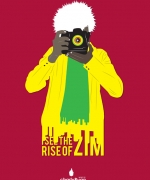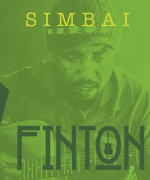Rewriting the Story for Zimbabwean Girls
For the past 6 months I have worked as an assistant grade 2 teacher at a local primary school. This means most of my days are spent listening to and teaching 8 year olds to read, as well as playing judge and jury to the many cases that arise between kids when there are 30 of them packed in one room together for about 6 hours daily. One of the perks of my job is knowing children’s books inside and out, books that most adults have probably forgot they have ever read; life lessons they probably don’t
remember learning.
One of these truly significant books are the Sunrise Series by C. L. Lewis and V. Jenkins. When they were first published in 1986 it is no wonder they were received with so much support from the general public, the tales of the adventures Tatenda, Chipo, Jenny and David shared were relevant in a country starting to get over a lot of racial tension. The books upheld clean cut morals and their religious emphasis made them easy favourites for primary schools. To this day Sunrise Readers are to be found in most bookstores in the country and form part of the informal stepping stones almost every child in our education system passes.
Last year, on a whim, I asked the girls I taught how many of them thought a girl could be a Doctor. About 5 in a class of 15 raised their hands, while the ones who had not tried to coax them to put their hands down, in the way children do when convinced they are right. It turned into a heated debate, one that left me a little sad and wondering why at such a young age so many children’s dreams had already been filtered and limitations had already been placed on their abilities.
The way I saw it, at age 8 our dreams should still be expansive and yes, slightly ridiculous in all their diversity because we really are still on a level playing field. There is little that could have happened in the two years since starting school to convince any child that they are not as worthy of the highest successes or ambition as the next person.
Until passages like these kept catching my attention during reading time;
“Mending is mother’s work”
Said Tatenda,
“come and help me now, Chipo.
You can mend at night time.”
Book 5 in The Sunrise Readers Series by V. Jenkins and C Lewis 1987.
“See the girls knit.
Jenny is a girl.
Chipo is a girl.
Chipo says, “My wool is blue. I can knit it””
Book 3 in The Sunrise Readers Series by V. Jenkins and C. Lewis 1986.
In these stories, the value of the girls is constantly emphasised by their ability and enthusiasm to mend, sew and make tea, in fact it’s pretty much all the women ever do together. The books are written so that it is funny when David makes an attempt at knitting (because it is a purely feminine thing to do) and when a challenge arises, father or Tatenda and David come to the girls’ rescue. So is it pure coincidence that one of the most influential book series for Zimbabwean children is one that holds tight confines on what a woman’s abilities, and the fact that girls who read these books expressed uncertainty in their ability based on their gender? I don’t think so.
I think the major reason so many young girls don’t give themselves a genuine shot at succeeding lies in stories we tell them about themselves. The books we give them to read hold critical messages, and as a result of these teachings we start the obstacle course early for young girls, by the time they are in Form 6 they have been tried and tested so that few are still in the race to rule the world. We are essentially shutting doors in their faces before they even know they can walk through them. I understand that one way our government has tried to keep girls in the game is by lowering their grade requirements for challenging courses, as well as imposing gender quotas here and there, basically telling them their best is naturally lower than that of their brothers, and that it’s alright. However, I feel that our only true solution is going to be one that starts from the beginning.
We need to rewrite the narrative, go back to basics and tell the story so that Chipo, Jenny and their mothers can do more than mend and make tea. We need to broaden the horizon from the beginning so that girls innately expect more of themselves than has always been the mediocre norm. More heroines that the little ones can read about and witness for themselves in proudly Zimbabwean children’s literature so that the idea of becoming an influential leader is not as foreign or intimidating when the time comes for them to choose who they want
to become.



